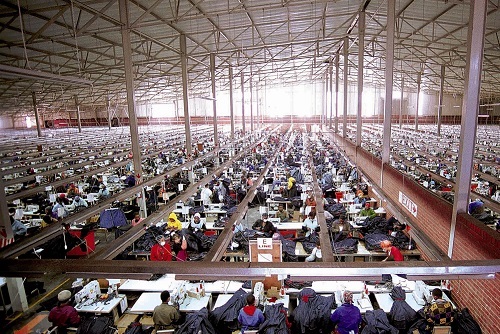Editorial Comment
The revelations stemming from the Dissemination Workshop on International Civil and Political Rights this week are enough to send shockwaves through our country.
Over 120 brave women have reportedly come forward, shedding light on a distressing reality that has festered within some factories in Maseru.
These women, according to advocate Rapelang Mosae, recounted harrowing experiences of coercion into sexual acts by male supervisors, acts they felt compelled to endure to secure their livelihoods.
The allegations, which extend to instances of rape, sexual assault, and harassment, are deeply distressing and demand our collective attention.
Advocate Mosae, a beacon of human rights advocacy, has brought these issues to the forefront through his presentation on the Workers’ Rights Consortium (WRC) report.
This document underscores a stark reality: that female workers in local factories have been subjected to abhorrent practices as a means to secure contracts or maintain their employment.
One of the most troubling aspects is the mention of Nien Hsing factories as hotspots for such exploitative behavior. Persistent sexual coercion, verbal harassment, and unwanted physical contact have been reported, painting a disturbing picture of the workplace environment for these women.
This crisis underscores the obligations both of our State and Non-State Actors as outlined in the International Covenant on Civil and Political Rights (ICCPR) and its protocols.
The State bears the responsibility to enact and enforce laws compelling businesses to respect human rights and establish a regulatory framework that fosters such respect. Businesses, too, are called upon to take measures to prevent, mitigate, and rectify human rights abuses they contribute to.
While the textile industry remains a major employer in Lesotho, it is crucial that no one’s livelihood comes at the cost of workers’ dignity, safety, or well-being. The agreements signed in 2019, following the investigation conducted by WRC, were monumental steps towards addressing gender-based violence and harassment in our garment factories. These agreements not only identified the problem but established enforceable measures to combat it.
However, it is disconcerting to learn that workers at Nien Hsing continue to face obstacles when attempting to exercise their rights. Antagonistic management inhibiting workers’ freedom of association is unacceptable and must be addressed. No one should have to fear for their job simply for seeking to organise.
We commend those who have come forward to share their experiences and stand in solidarity with them. Their courage is a beacon of hope for change. It is now incumbent upon all of us – individuals, media, businesses, and government alike – to work collectively to create workplaces that are safe, respectful, and free from exploitation.
We must remember that this is not a battle for a few, but a collective responsibility. By standing together, we can ensure that every worker in Lesotho, regardless of gender, can pursue their livelihoods with dignity, safety, and the knowledge that their rights will be protected.
Let us turn this moment of reckoning into a catalyst for lasting change.
Summary
- This crisis underscores the obligations both of our State and Non-State Actors as outlined in the International Covenant on Civil and Political Rights (ICCPR) and its protocols.
- The State bears the responsibility to enact and enforce laws compelling businesses to respect human rights and establish a regulatory framework that fosters such respect.
- While the textile industry remains a major employer in Lesotho, it is crucial that no one’s livelihood comes at the cost of workers’ dignity, safety, or well-being.

Your Trusted Source for News and Insights in Lesotho!
At Newsday Media, we are passionate about delivering accurate, timely, and engaging news and multimedia content to our diverse audience. Founded with the vision of revolutionizing the media landscape in Lesotho, we have grown into a leading hybrid media company that blends traditional journalism with innovative digital platforms.









